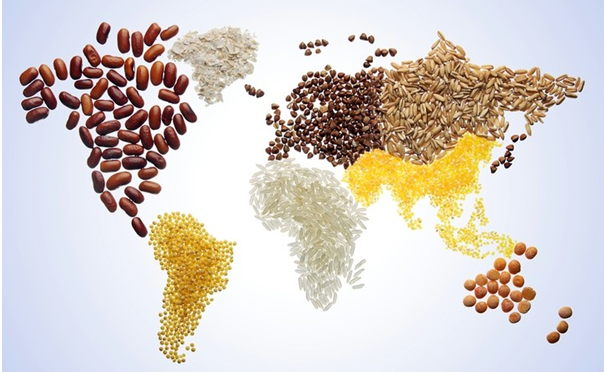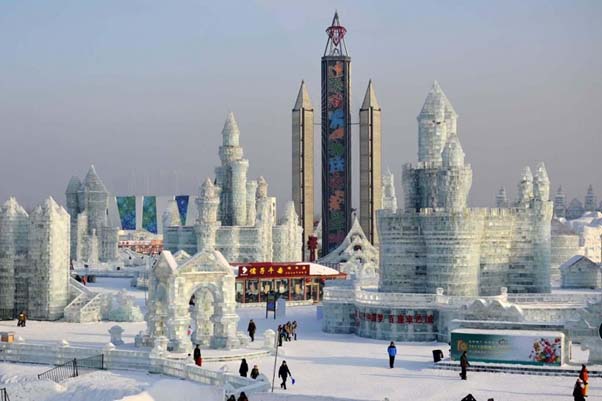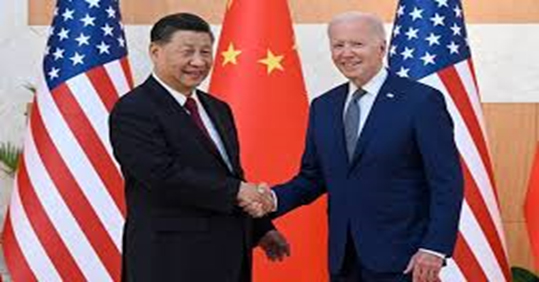Unravelling the Nexus: Food Insecurity in a Globalized War-Stricken World
Posted on : August 17, 2023Author : Purnima Prasad

Globalization, is now a contested term, but in simple and lucid terms, itrepresents the interdependence of the world. This can be thought of as the threads of a giant spider web formed over thousands of years, with the number and extent of these threads increasing over time. People, money, goods, ideas, and even disease and devastation are now moving on these threads in ever greater quantity and speed, resulting the world witnessing a Domino-effect, that can be sensed by the people living far away from the region of occurrence.The world has witnessed around 10,624 battles in the history of mankind,but the effects of Ukraine-Russia War is being felt by every country in the world, precisely because of the disruption in the supply chain, resulting in rising fuel prices and increasing food insecurity in an already hunger-stricken world.
Russia and Ukraine, major producers of staple foods, supply 90 percent of Armenia, Azerbaijan, Eritrea, Georgia, Mongolia and Somalia’s wheat supply. Ukraine is also a major source of wheat for the World Food Program, which provides food aid to 115.5 million people in more than 120 countries. And Russia is the world’s third largest oil producer, second largest natural gas producer and largest exporter. These necessities are becoming increasingly scarce as the war disrupts production and export processes. Global access to oil and gas is severely restricted. Much of the world’s wheat, corn and barley remains in Ukraine and Russia. It makes up an even larger portion of the world’s fertilizer supply and is especially important for agriculture. Nonetheless, these bottlenecks have led to record price increases. Grocery costs have increased by 50% since the beginning of 2022. Oil prices, currently up 33%, are expected to rise more than 50% by the end of the year. The cost of transporting fuel, a major contributor to Africa’s inflation in 2021, has risen since the war began. Rising prices have contributed to the global cost of living crisis, disproportionately impacting developing countries. Communities in Africa, Asia, Latin America and the Middle East have been hit hard, with already vulnerable households paying the highest price.
But all of it came to a halt in 2023, whenRussia, refused to renew the Black Sea Grain Initiative, which allowed Ukraine to able to export its grains to the world, with no harm caused by Russia to the needy nations.But according to, a macroeconomist,Mikhail Khan, only 3% of the total grains reached the poor nations. And the rest according to Russia is used by the already well-off countries.However, according to the United Nations, Ukraine is supplying the World Food Program (WFP) with 725,000 tons of grain, which has been sent as humanitarian aid to Afghanistan, Djibouti, Ethiopia, Kenya, Somalia, Sudan and Yemen. Ukraine shipped more than 80% of its total grain to the UN WFP last year, compared with 50% before the war, according to the EU. US Ambassador to the UN Linda Thomas Greenfield said Russia’s withdrawal from the grain deal was an “atrocious act”. In Somalia, Kenya, Ethiopia and South Sudan, it is estimated that more than 50 million people are now in need of food aid after years of lack of rain.
Ukraine and Russia said they were looking at alternative ways to maintain grain supplies after a deal allowing exports to Africa, the Middle East and Asia collapsed after Russia refused to rejoin the deal, which is due to expire on July 18.President Zelensky called for the continuation of the Black Sea Grain Export Agreement without Russia’s involvement, and said he had reached an agreement with UN Secretary-General António Guterres to “cooperate with responsible countries towards food security and restoration of food supply through the Black Sea Route”.
Ukrainenow faces limited and more expensive export opportunities. This will inevitably push up world grain prices, exacerbating the already rampant global food inflation.Options include transportation across the Danube or transshipment to ships at the Romanian port of Constanta, which is said to handle one-third of Ukraine’s grain exports since the Russian invasion. Another export opportunity is overland to the west. Both options are significantly more expensive than sea freight across the Black Sea and Bosporus. In a recent report, shipbroker Simpson Spence Young (SSY) assessed the potential impact on the global grain trade. Canada, Russia and the United States could become marginal wheat suppliers, the company said. Corn from Argentina and Brazil. This could lead to increased ton-miles to markets in Africa, the Middle East and Asia. However, the broker said this could be partially offset by faster shipping, without being affected by BSGI’s delays and inefficiencies.
However, the question of food insecurity will not end even if the Black Sea Grain Initiative is resumed as it was initially, the issue needs a multifieldapproach.
First, provide prompt and appropriate assistance to people suffering from food insecurity through humanitarian assistance such as the World Food Program and effective domestic financial measures. Policymakers around the world should prioritize fighting inflation and protecting the most vulnerable to reduce the burden of the cost-of-living crisis. Short-term social assistance should focus on providing emergency food aid and cash transfers to the poor, as recently announced by Djibouti, Honduras and Sierra Leone. Where that is not possible, temporary relief is available through subsidies and tax measures. Increase food production and improve distribution, including by ensuring adequate access to fertilizers and crop diversification. Expanding trade finance and strengthening supply chains are essential to address the current food price shocks. The World Bank and other multilateral development banks play a key role in expanding trade finance for agricultural and other food products and helping countries make critical logistical and infrastructure improvements. Second, investing in climate-resilient agriculture is essential to boosting future yields. More intense and unpredictable weather events increase food insecurity. Low-income countries, especially sub-Saharan Africa, are the least prepared for the impacts of climate change. Solutions must be tailored to national contexts and focus on low-cost, high-impact actions such as investing in new crop varieties, improving water management and disseminating information. For example, Ethiopia, Kenya and Rwanda are using mobile technology to provide farmers with rainfall forecasts to help grow crops and obtain crop insurance.
Some organizations and individuals have devised innovative solutions. Rice and grain ATMs. Similar to traditional ATMs, these machines distribute rice and other grains to those in need, helping combat food insecurity in a sustainable and efficient manner. The organization’s main purpose is to provide free rice to people facing financial difficulties due to the COVID-19 pandemic. Rice ATM has installed over 50 of his vending machines across Vietnam to provide free rice to thousands of people who have lost their jobs or are struggling to make a living due to the pandemic. Rice ATM is helping achieve Sustainable Development Goal. Partnerships for the Goals – by facilitating collaboration between local businesses and communities to address food insecurity. Overall, Rice ATM is an innovative solution to address food insecurity during the COVID-19 pandemic while promoting sustainable practices and community involvement. The idea is to provide easy and affordable access to essential grains for those in need, especially those who cannot afford to buy grains on a regular basis. Like rice ATMs, grain ATMs are designed to combat food insecurity and support sustainable food systems. For example, in 2020, the Indian government launched a similar program called Annavitran Portal to provide subsidized food grains to migrant workers during the COVID-19 pandemic. These machines will help address some of the key challenges facing the world today, including food insecurity, poverty and climate change. Such innovations by the global community can make food more accessible and affordable for those in need, helping to reduce hunger and malnutrition while promoting sustainable agriculture and circular economy principles. And lastly, it’s time to diversify the sources of import and keep aside the ‘Bad Blood’ aside for humanity.
References
Bartlett, P. (2023, July 19, ). What are the alternatives to the Black Sea grain corridor? Retrieved from Sea Trade Maritime News.: https://www.seatrade-maritime.com/dry-bulk/what-are-alternatives-black-sea-grain-corridor
Innovative Solution to Food Insecurity in Developing Countries. (2023, April 3). Retrieved from Global Society : https://www.globalsociety.earth/post/innovative-solution-to-food-insecurity-in-developing-countries?gclid=Cj0KCQjwwvilBhCFARIsADvYi7JROamK6jU7wxxmEJ5vmytPz3EczRdQuj4NHcW5iLTec7EYFKM2K00aAku0EALw_wcB
Kristalina Georgieva, S. S. (2022). Global Food Crisis Demands Support for People, Open Trade, Bigger Local Harvests. Retrieved from IMF Blog: https://www.imf.org/en/Blogs/Articles/2022/09/30/global-food-crisis-demands-support-for-people-open-trade-bigger-local-harvests
Nichols, M. (2023, July 21, ). ‘Many may die’ warns UN after end of Black Sea grain deal. Retrieved from Reuters: https://www.reuters.com/world/europe/many-may-die-warns-un-after-end-black-sea-grain-deal-2023-07-21/#:~:text=Russia%20quit%20the%20Black%20Sea,had%20reached%20the%20poorest%20countries.
Society, N. G. (, 2022, May 19). Globalisation. Retrieved from National Geography: https://education.nationalgeographic.org/resource/globalization/
Ukraine and the food and fuel crisis: 4 things to know. ( 2022, SEPTEMBER 22). Retrieved from UNWomen: https://www.unwomen.org/en/news-stories/feature-story/2022/09/ukraine-and-the-food-and-fuel-crisis-4-things-to-know?gclid=Cj0KCQjwwvilBhCFARIsADvYi7LyaIeuU06XzzAC1vOem5ffj0cS1X_FjiO5lVCPQlaFtfmmpso4hesaAl9OEALw_wcB
Ukraine grain deal: What has happened to food prices since it ended? (2023, july 20). Retrieved from BBC World: https://www.bbc.com/news/world-61759692
Ukraine, Russia Seek Alternatives After Collapse Of Black Sea Grain Deal. (n.d.). Retrieved from Radio free Europe.: https://www.rferl.org/a/ukraine-russia-alternatives-black-sea-grain-deal/32508910.html
Purnima Prasad
Intern, Asia in Global Affairs
The originality of the content and the opinions expressed within the content are solely the author’s and do not reflect the opinions and beliefs of the website.




